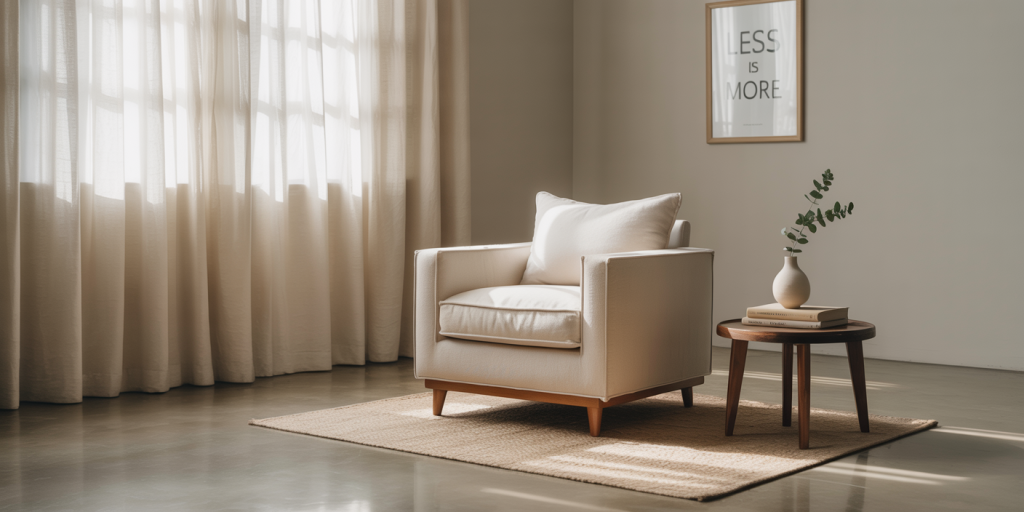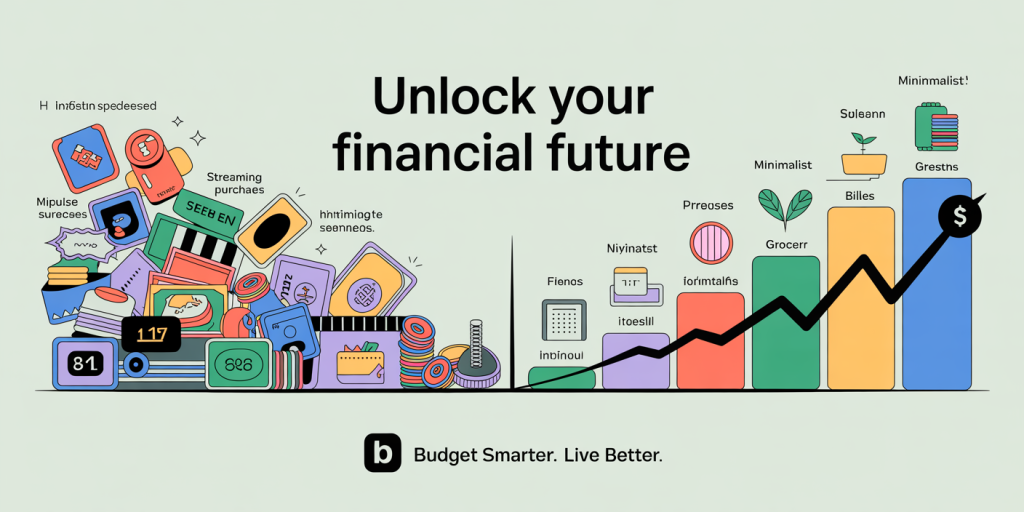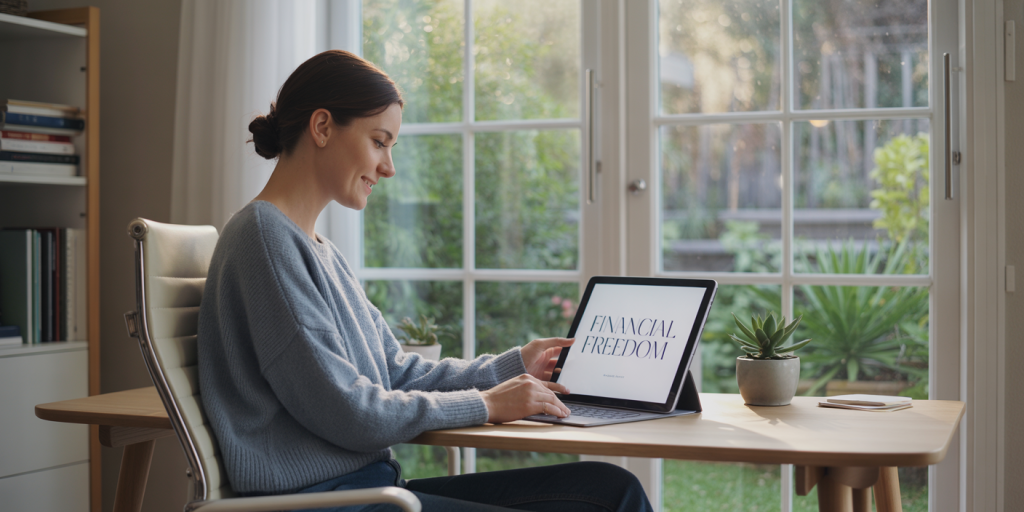In a world obsessed with consumerism, accumulating possessions often feels synonymous with success. Yet, an increasing number of individuals are discovering that owning less can significantly enhance their financial health and overall wealth. Minimalist money management—a philosophy that encourages thoughtful consumption and prioritizes essentials—has emerged as a counterbalance to material excess. This article explores how embracing minimalism not only streamlines your lifestyle but also paves the way to greater riches, both financially and emotionally.

The Financial Burden of Excess Ownership
Owning more possessions than necessary frequently translates into hidden costs that erode savings and dampen long-term financial goals. For example, consider the average American household, which houses an estimated 300,000 items (Source: NPR). Each item, whether large or small, carries direct and indirect expenses: purchasing price, maintenance, storage, and replacement costs. A cluttered garage full of unused items might seem harmless, but it can sap money through storage rental fees or wasted time managing belongings.
Moreover, consumer goods depreciate rapidly. Electronics, fashion items, and even vehicles lose considerable value soon after purchase. One practical case study is the impact of smartphone upgrades: a 2023 report from the Pew Research Center highlights that the average American upgrades their smartphone every 2.5 years, spending upwards of $1,200. Instead of recouping any value, these items become obsolete, replaced frequently, feeding a cycle of spending with minimal return.
Adopting minimalism reduces these costs drastically, freeing capital that can be redirected into investments or savings, compounding wealth over time.
Simplified Spending and Increased Savings
Minimalism encourages spending based on necessity and value rather than impulse or trend-driven purchases. This shift leads to a tighter budget and increased control over money flow. For instance, the concept of a “capsule wardrobe”—a small, versatile set of clothing that meets all style needs—can reduce clothing expenditure by up to 80%, according to a 2022 consumer habits study by McKinsey & Company.
By focusing on quality over quantity, minimalists avoid the pitfall of fast fashion and disposable goods. Instead of owning 30 low-cost shirts, they might own 10 premium shirts that last years. This approach translates into long-term savings and mitigates the psychological pressure of keeping up with societal consumption norms.
Such savings can be redirected to high-yield opportunities like retirement accounts, index funds, or real estate investments. For example, the average annual return on the S&P 500 index has hovered around 10% historically. Diverting even $300 per month saved from reduced spending on non-essential goods towards such investments could grow to over $100,000 in 20 years, leveraging the power of compound interest.
| Expense Category | Average Monthly Spending (Non-Minimalist) | Average Monthly Spending (Minimalist) | Estimated Savings Monthly |
|---|---|---|---|
| Clothing | $150 | $30 | $120 |
| Entertainment | $200 | $100 | $100 |
| Gadgets and Electronics | $120 | $50 | $70 |
| Dining Out | $250 | $150 | $100 |
| Total | $720 | $330 | $390 |
This comparative table illustrates practical changes in budget allocation when adopting a minimalist lifestyle.

Minimizing Debt and Improving Credit Health
Accumulating possessions often goes hand in hand with increasing debt, as people use credit cards or loans to finance their consumption. According to the Federal Reserve, as of early 2024, American consumer debt surpassed $17 trillion, with credit card debt alone reaching $1 trillion. High-interest debt can cripple wealth-building by funneling income toward interest payments rather than savings or investments.
Minimalism combats this by fostering mindful buying habits and discouraging unnecessary debt accumulation. A poignant case is that of Joshua Becker, founder of Becoming Minimalist, who has documented how downsizing possessions helped him eliminate his credit card debt within a year. By refusing to purchase unneeded items and focusing on paying off existing balances, he improved his credit score and financial freedom.
Additionally, reduced expenditures decrease reliance on credit, lowering credit utilization ratios—a key factor in credit scoring models. A healthier credit score can reduce interest rates on mortgages, car loans, and business financing, leading to significant cost savings over time.
Psychological Wealth: How Less Leads to More Peace of Mind
Financial health is intertwined with mental well-being. Owning less reduces stress associated with clutter, decision fatigue, and the constant urge to consume. This psychological wealth can translate into better financial decision-making and increased productivity.
Research from the University of California, Los Angeles (UCLA) found that clutter disrupts focus, leading to stress and anxiety. Reducing possessions creates a serene environment conducive to thoughtful financial planning and goal setting. Minimalists often report increased satisfaction with their financial status, even if their net worth does not drastically change immediately.
Case studies further highlight this connection. For example, Sarah Wilson, an Australian author and minimalist, credits owning fewer items for her reduced anxiety and ability to save aggressively, purchasing her first home within five years of minimalism adoption.
This “emotional dividend” gained from owning less ultimately contributes to smarter money management practices, creating a virtuous cycle.
Environmental and Economic Impact of Minimalist Money
Choosing to own less also benefits the environment, which in turn supports a sustainable economy. Manufacturing and disposing of goods consume resources and energy, contributing to pollution and climate change. The Ellen MacArthur Foundation reports that the fashion industry alone contributes to 10% of global carbon emissions.
Minimalist consumers reduce demand for new goods, encouraging companies to shift toward sustainable practices, such as product longevity and repairability. This market transformation can lead to innovative industries and new financial opportunities in green sectors.
Economically, minimalist spending habits contribute to financial stability, reducing the likelihood of personal bankruptcies. According to the U.S. Courts, personal bankruptcy filings declined by 12% after 2020, a trend partly attributed to increased financial literacy and mindful consumption.
Thus, owning less is not merely a personal finance strategy but a component of broader economic and environmental well-being.
The Future of Wealth Through Minimalist Spending
Looking ahead, minimalist money principles will likely gain traction as economic uncertainties and environmental concerns rise. The COVID-19 pandemic accelerated digital transformations and remote work, prompting many to reconsider physical possessions and expenditures on commuting or dining out.
Technological advancements such as the sharing economy—exemplified by platforms like Airbnb and Zipcar—also align with minimalist values. These services allow access to goods and experiences without ownership, enabling cost savings and flexibility.
Financial advisors increasingly recommend minimalist budgeting to younger generations facing wage stagnation and rising living costs. By focusing on owning less, individuals can build emergency savings, invest early, and avoid pitfalls of debt.
Educators and policymakers are starting to embed minimalism-informed financial literacy in curricula to prepare future generations for sustainable money management. According to a 2023 survey by the National Endowment for Financial Education, 68% of millennials expressed interest in learning minimalist financial strategies, representing a paradigm shift.
In summary, the future of wealth is not just about how much you can earn but how wisely you can manage and simplify your expenditures. Minimalist money is poised to transform not only personal finances but also societal attitudes towards prosperity.
—
By consciously owning less and focusing on essentials, individuals create room for financial freedom, improved credit, emotional well-being, and environmental stewardship. This holistic approach redefines wealth beyond mere accumulation, revealing that sometimes, less truly is more on the pathway to richness.
